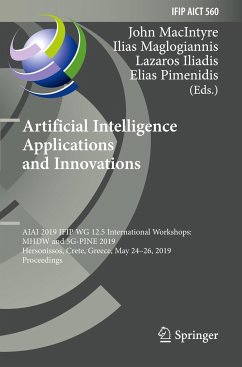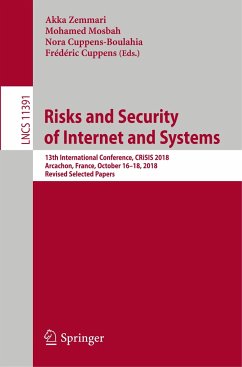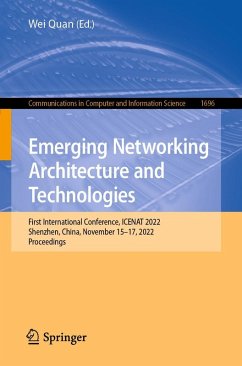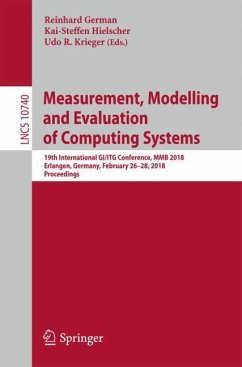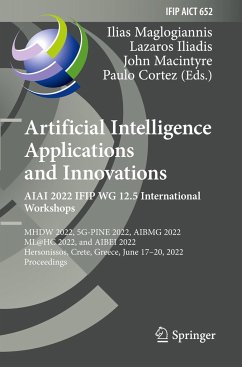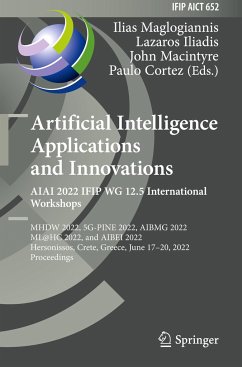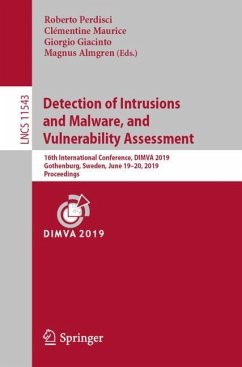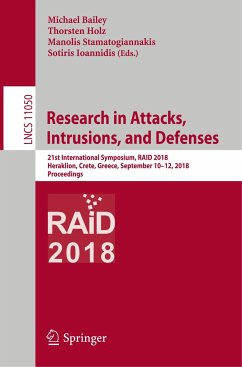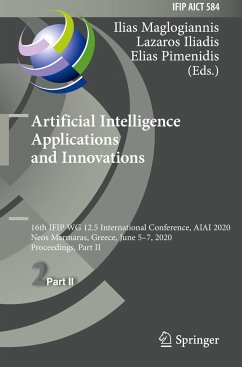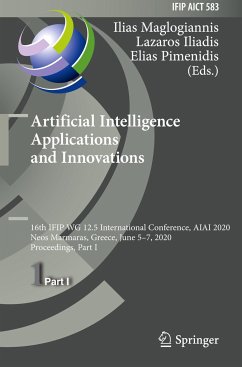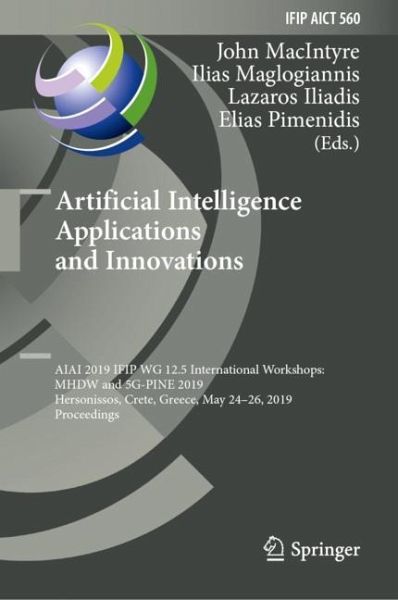
Artificial Intelligence Applications and Innovations
AIAI 2019 IFIP WG 12.5 International Workshops: MHDW and 5G-PINE 2019, Hersonissos, Crete, Greece, May 24-26, 2019, Proceedings
Herausgegeben: Macintyre, John; Maglogiannis, Ilias; Iliadis, Lazaros; Pimenidis, Elias

PAYBACK Punkte
30 °P sammeln!
This book constitutes the refereed proceedings of two International Workshops held as parallel events of the 15th IFIP WG 12.5 International Conference on Artificial Intelligence Applications and Innovations, AIAI 2019, in Hersonissos, Crete, Greece, in May 2019: the 8th Mining Humanistic Data Workshop, MHDW 2019, and the 4th Workshop on 5G-Putting Intelligence to the Network Edge, 5G-PINE 2019.The 6 full papers and 4 short papers presented at MHDW 2019 were carefully reviewed and selected from 13 submissions; out of the 14 papers submitted to 5G-PINE 2019, 6 were accepted as full papers and 1...
This book constitutes the refereed proceedings of two International Workshops held as parallel events of the 15th IFIP WG 12.5 International Conference on Artificial Intelligence Applications and Innovations, AIAI 2019, in Hersonissos, Crete, Greece, in May 2019: the 8th Mining Humanistic Data Workshop, MHDW 2019, and the 4th Workshop on 5G-Putting Intelligence to the Network Edge, 5G-PINE 2019.
The 6 full papers and 4 short papers presented at MHDW 2019 were carefully reviewed and selected from 13 submissions; out of the 14 papers submitted to 5G-PINE 2019, 6 were accepted as full papers and 1 as short paper. The MHDW papers focus on the application of innovative as well as existing data matching, fusion and mining and knowledge discovery and management techniques (such as decision rules, decision trees, association rules, ontologies and alignments, clustering, filtering, learning, classifier systems, neural networks, support vector machines, preprocessing, post processing, feature selection, visualization techniques) to data derived from all areas of humanistic sciences, e.g., linguistic, historical, behavioral, psychological, artistic, musical, educational, social, and ubiquitous computing and bioinformatics. The papers presented at 5G-PINE focus on several innovative findings coming directly from modern European research in the area of modern 5G telecommunications infrastructures and related innovative services and cover a wide variety of technical and business aspects promoting options for growth and development.
The 6 full papers and 4 short papers presented at MHDW 2019 were carefully reviewed and selected from 13 submissions; out of the 14 papers submitted to 5G-PINE 2019, 6 were accepted as full papers and 1 as short paper. The MHDW papers focus on the application of innovative as well as existing data matching, fusion and mining and knowledge discovery and management techniques (such as decision rules, decision trees, association rules, ontologies and alignments, clustering, filtering, learning, classifier systems, neural networks, support vector machines, preprocessing, post processing, feature selection, visualization techniques) to data derived from all areas of humanistic sciences, e.g., linguistic, historical, behavioral, psychological, artistic, musical, educational, social, and ubiquitous computing and bioinformatics. The papers presented at 5G-PINE focus on several innovative findings coming directly from modern European research in the area of modern 5G telecommunications infrastructures and related innovative services and cover a wide variety of technical and business aspects promoting options for growth and development.



